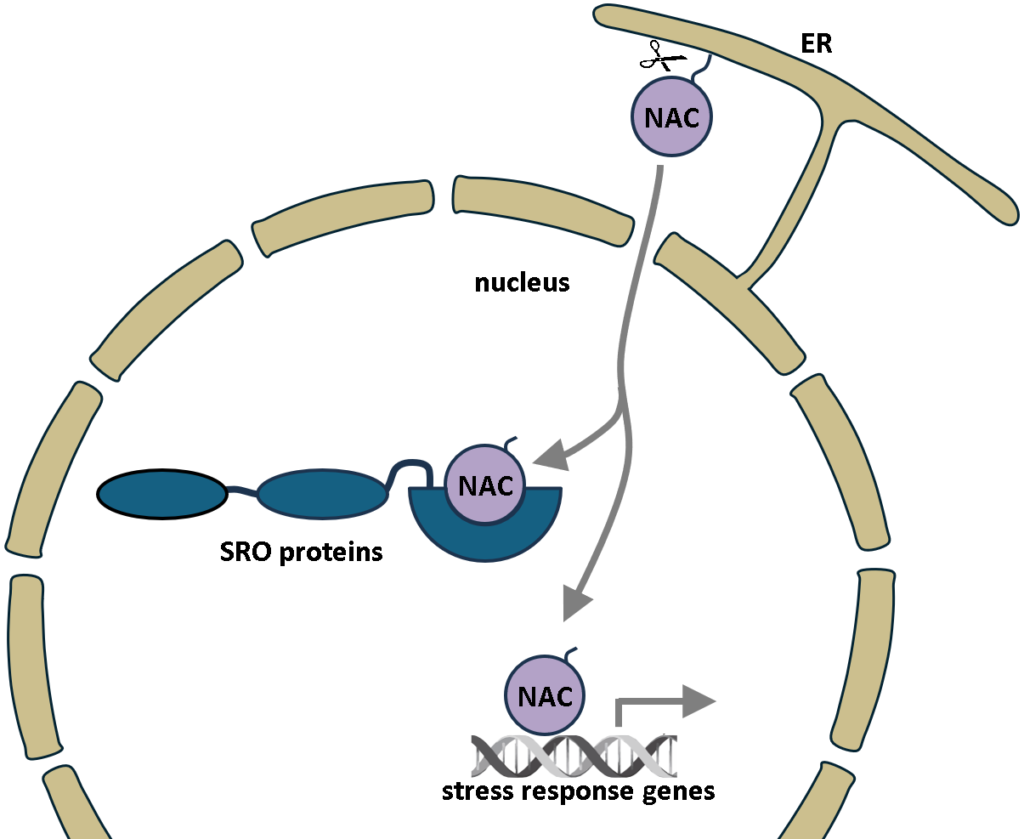Role of plant SRO proteoforms in tolerance to oxidative and salinity stress
This SNP2Prot project will address the role of natural polymorphisms in transcriptional co-regulators in plant tolerance to oxidative and salinity stress. SRO (SIMILAR TO RCD ONE) proteins sequester different types of transcription factors and thereby prevent them from binding to their respective promoter sequences. Natural polymorphisms in SRO genes from wheat and maize have been shown to enhance tolerance towards high salinity and drought stress, respectively. How these different proteoforms impinge on transcription factors and regulation of stress response genes is poorly characterised. Focussing on SRO proteins from Arabidopsis and wheat (AtRCD1 and TaSRO1), this project will address the impact of SRO proteoforms on plant performance under environmentally challenging conditions. Despite their documented influence on abiotic plant stress tolerance, our understanding on how SRO proteins function on protein level is incomplete. We will employ complementary structural biology techniques to gain novel insights into the three-dimensional structures of SRO proteins. This knowledge will contribute to understanding if and how amino acid polymorphisms influence the formation of SRO homo-oligomers and their interaction with nuclear transport receptors that affect the subcellular localisation of SRO proteins. In close collaboration with project A01, we will investigate if natural polymorphisms in stress-responsive NAC transcription factors influence binding to SRO proteins. Collectively, novel structural data paired with functional characterisation of Arabidopsis and wheat SRO proteoforms in planta will assess the role of natural SRO polymorphisms in plant adaption to environmentally challenging habitats.



